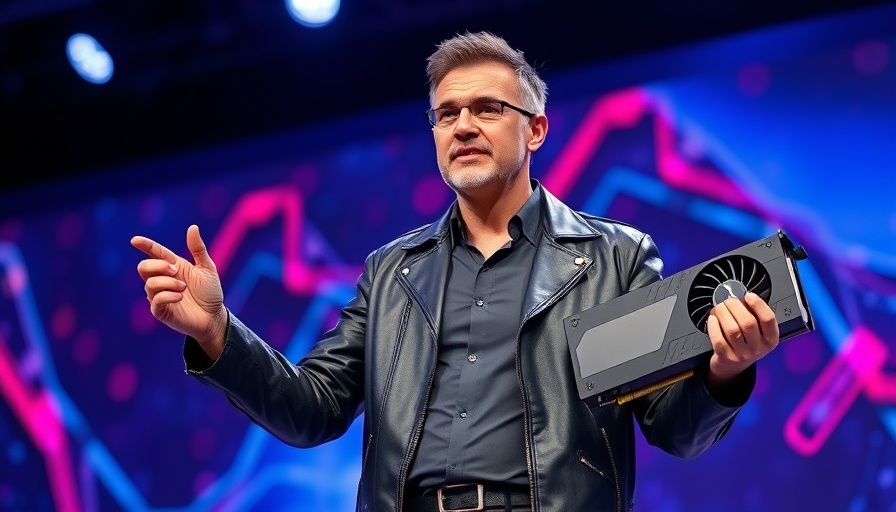
Nvidia GTC 2025: Pioneering the Next Era of AI Technology
The Nvidia GTC 2025 conference has rolled out critical announcements that promise to shape the future of artificial intelligence, consolidating Nvidia's role as a key player in this rapidly evolving landscape. As the tech world becomes increasingly infused with generative AI, Nvidia's innovations are making headlines, from new platforms to enhanced reasoning models.
Welcome to the Age of AI Reasoning
With the unveiling of the Blackwell Ultra AI Factory Platform, Nvidia is breaking new ground in what CEO Jensen Huang describes as the 'age of AI reasoning.' This advanced platform represents a significant leap forward, enabling businesses to enhance their computing capabilities at critical times. The Blackwell architecture incorporates the Nvidia GB300 NVL72 rack-scale solution, delivering 1.5 times the AI performance compared to the previous models. This innovation aligns perfectly with the industry's shift toward agentic AI, where accuracy and speed are paramount.
Empowering Developers with Open Reasoning Models
Nvidia is not just focusing on hardware; it’s also enriching its software offerings. The launch of the Llama Nemotron open reasoning models is a game changer for developers. Built on Meta's popular Llama models, these new advanced AI agents provide sophisticated reasoning capabilities that can significantly improve performance across various applications, including multi-step calculations and coding. Enhanced by post-training refinements, these models can see up to a 20% accuracy improvement over the baseline.
Transitioning to AI Factories: The Future is Now
As data center infrastructures evolve, Huang envisions a shift towards ‘AI factories’ that are not just smarter, but scalable and more efficient. AI factories will be able to manage intensive computing demands better and anticipate the needs of businesses in real-time, thus addressing many of the infrastructure strains faced today. This transition may very well redefine the role of AI in firms, moving from mere support tools to integral components of business strategy and operations.
What This Means for Business Leaders
For CEOs, marketing managers, and business professionals, keeping an eye on these developments is crucial. The emphasis on integrated AI capabilities can fundamentally alter how businesses operate, from automated decision-making processes to predicting market trends accurately. Companies investing in these technologies now stand to gain a competitive edge, utilizing AI not just as a support mechanism but as a strategic asset.
Diverse Perspectives on AI’s Future
While the advances in AI technology promise numerous benefits, there are critical voices that express caution. Ethical considerations concerning AI reasoning and the potential for biased algorithms challenge the narrative that these technologies will only deliver positives. Business leaders must engage in discussions around governance and ethics to ensure safe deployment of AI solutions, balancing innovation with responsibility.
Practical Tips to Harness AI in Business
To embrace the evolving AI landscape, leaders should consider integrating continuous learning processes. Upskilling their teams on the latest technologies and fostering a culture that welcomes adaptation will empower employees to leverage AI tools effectively. Establishing partnerships with tech firms may also accelerate the process of adopting these next-generation AI solutions.
The Road Ahead: What Should You Do Next?
As Nvidia continues to unveil technologies that push the boundaries of what's possible, now is the time for business professionals to explore how these changes can be harnessed. Organizations that engage with AI early on and integrate advanced systems into their operations may not only enhance efficiencies but also pave the way for innovation that transforms their industry.
Stay updated and challenge your company’s current strategy by participating in discussions and trainings on AI trends. NVIDIA’s advancements signal not just a technological evolution but a profound shift in how businesses will operate in the future.
 Add Row
Add Row  Add
Add 




 Add Row
Add Row  Add
Add 

Write A Comment